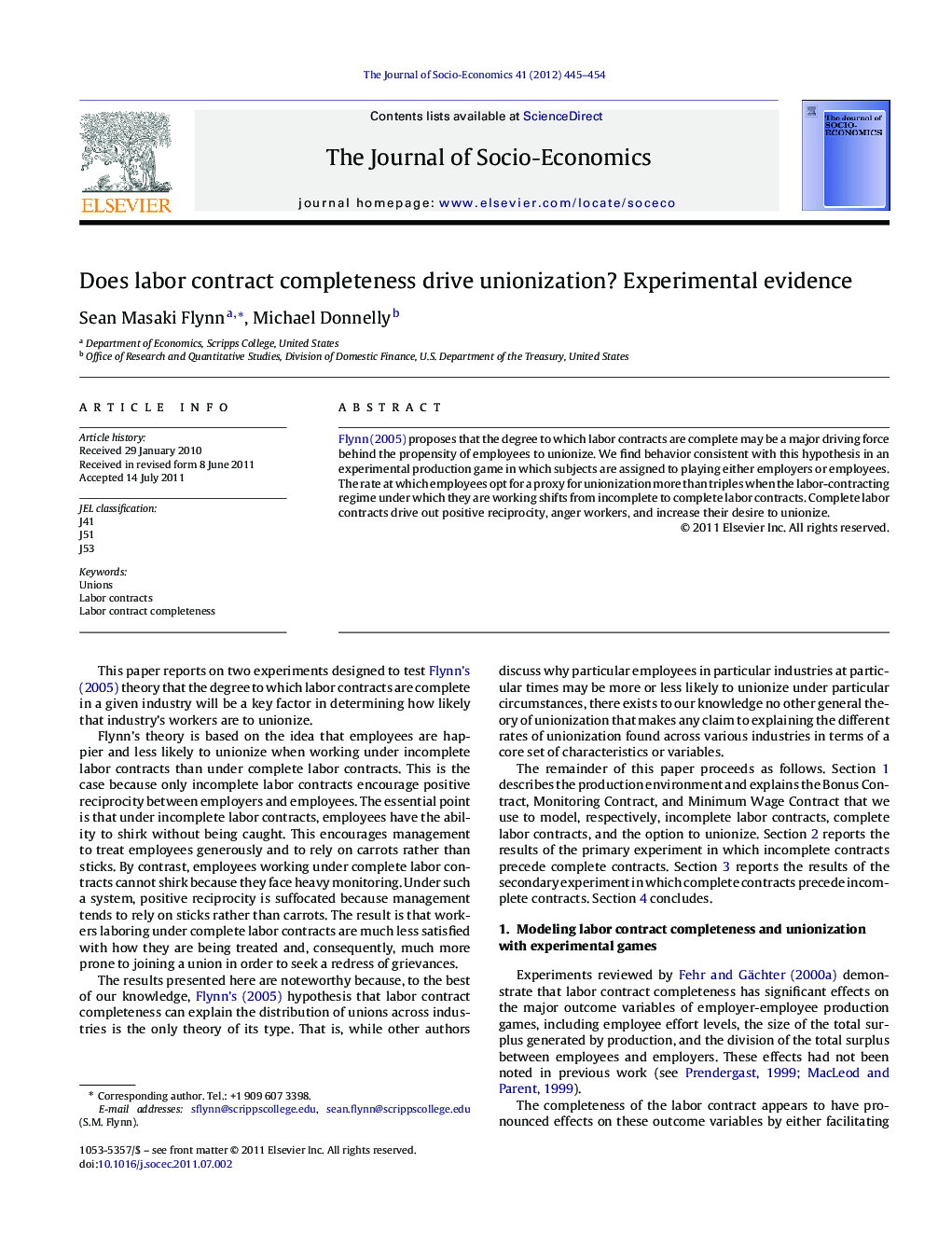| Article ID | Journal | Published Year | Pages | File Type |
|---|---|---|---|---|
| 970727 | The Journal of Socio-Economics | 2012 | 10 Pages |
Flynn (2005) proposes that the degree to which labor contracts are complete may be a major driving force behind the propensity of employees to unionize. We find behavior consistent with this hypothesis in an experimental production game in which subjects are assigned to playing either employers or employees. The rate at which employees opt for a proxy for unionization more than triples when the labor-contracting regime under which they are working shifts from incomplete to complete labor contracts. Complete labor contracts drive out positive reciprocity, anger workers, and increase their desire to unionize.
► An experimental game tests whether labor contract completeness drives unionization. ► Complete contracts come with heavy monitoring that causes resentment among employees. ► Thus, the employees in our game opt for unions when faced with complete contracts.
